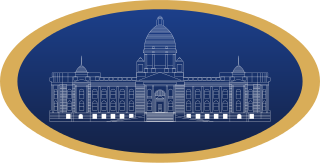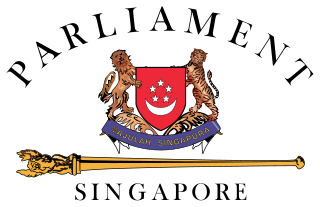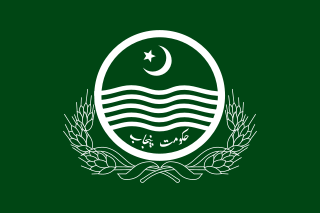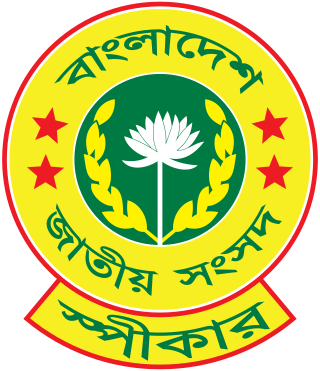
The president of South Africa is the head of state and head of government of the Republic of South Africa. The president directs the executive branch of the government and is the commander-in-chief of the South African National Defence Force. Between 1961 and 1994, the office of head of state was the state presidency.
Tricameralism is the practice of having three legislative or parliamentary chambers. It is contrasted with unicameralism and bicameralism, either of which is far more common.

The Parliament of the Republic of South Africa is South Africa's legislature; under the present Constitution of South Africa, the bicameral Parliament comprises a National Assembly and a National Council of Provinces. The current twenty-seventh Parliament was first convened on 22 May 2019.

The National Assembly is the unicameral legislature of Serbia. The assembly is composed of 250 deputies who are proportionally elected to four-year terms by secret ballot. The assembly elects a president (speaker) who presides over the sessions.

The National Council of Provinces (NCOP) is the upper house of the Parliament of South Africa under the (post-apartheid) constitution which came into full effect in 1997. It replaced the former Senate, but is very similar to that body, and to many other upper houses of legislatures throughout the world, in that its purpose is to represent the governments of the provinces, rather than directly representing the people.

The National Assembly of Pakistan is the lower house of the bicameral Parliament of Pakistan, with the upper house being the Senate. As of 2023, the National Assembly has a maximum membership of 336, of which 266 are directly elected by an adult universal suffrage and a first-past-the-post system to represent their respective constituencies, while 70 are elected on reserved seats for women and religious minorities from all over the country. Members hold their seats for five years or until the house is dissolved by the President on the advice of the Prime Minister. The house convenes at the Parliament House, Red Zone, Islamabad.

The Parliament of Victoria is the bicameral legislature of the Australian state of Victoria that follows a Westminster-derived parliamentary system. It consists of the King, represented by the governor of Victoria, the Legislative Assembly and the Legislative Council. It has a fused executive drawn from members of both chambers. The parliament meets at Parliament House in the state capital Melbourne. The current Parliament was elected on 26 November 2022, sworn in on 20 December 2022 and is the 60th parliament in Victoria.

The National Assembly is the directly elected house of the Parliament of South Africa, located in Cape Town, Western Cape. It consists of four hundred members who are elected every five years using a party-list proportional representation system where half of the members are elected proportionally from nine provincial lists and the remaining half from national lists so as to restore proportionality.

The Parliament of Singapore is the unicameral legislature of the Republic of Singapore, which governs the country alongside the president of Singapore. Largely based upon the Westminster system, the Parliament is made up of Members of Parliament (MPs) who are elected, as well as Non-constituency Members of Parliament (NCMPs) and Nominated Members of Parliament (NMPs) who are appointed. Following the 2020 general election, 93 MPs and two NCMPs from three political parties were elected to the 14th Parliament. Throughout the sitting of Parliament, nine NMPs are usually appointed by the president on a biennial basis.

The Parliament of Ghana is the legislative body of the Government of Ghana.

The Speaker of the Parliament of Singapore is the presiding officer of the Parliament of Singapore. The speaker is nominated by the prime minister before being appointed by the Parliament. The Speaker is also second in the presidential line of succession. The current Speaker is the People's Action Party MP for Marine Parade GRC, Seah Kian Peng.

The Tricameral Parliament, officially the Parliament of the Republic of South Africa, was the legislature of South Africa between 1984 and 1994, established by the South African Constitution of 1983, which gave a limited political voice to the country's Coloured and Indian population groups. The majority African population group was however still excluded, their interests notionally represented in the governments of the black homelands, or "bantustans", of which they were formally citizens. As the bantustans were largely politically impotent, its principal effect was to further entrench the political power of the White section of the South African population.

The National Assembly is Mauritius's unicameral legislature, which was called the Legislative Assembly from 1968 until 1992, when the country became a republic. Prior to 1968 and under British rule it was known as the Legislative Council. The Constitution of Mauritius provides for the parliament of Mauritius to consist of the President and the National Assembly. The parliament of Mauritius is modelled after the Westminster system of parliamentary democracy, where members of parliament are voted in at regular general elections, on the basis of a first past the post system. The working language of the National Assembly is English.

The Provincial Assembly of the Punjab is a unicameral legislature of elected representatives of the Pakistani province of Punjab, which is located in Lahore, the provincial capital. It was established under Article 106 of the Constitution of Pakistan, having a total of 371 seats, with 297 general seats, 66 seats reserved for women and 8 reserved for non-Muslims.

The speaker of the Legislative Assembly of Queensland is elected by the members of the Queensland Legislative Assembly to preside over sittings of the Assembly and to maintain orderly proceedings. The Speaker must be a member of the Legislative Assembly. The position is currently held by Curtis Pitt, a former Treasurer of Queensland who was elected to the post on 13 February 2018.
The President of the Senate presided over the Senate of South Africa, the upper house of the Parliament of South Africa. The President was chosen from among the Senators at its first sitting following a general election and whenever the office was vacant. The President acted as a "referee", taking charge of debates to make sure that the Senators could participate freely while keeping to the rules. The President also had managerial duties to ensure that Senate runs smoothly. Each political party in the Senate elected a chief whip to run its affairs. The presiding officers, the chief whips, and the Leader of Government Business together decided on the programme of work.

The Sarawak State Legislative Assembly is the legislative chamber of the unicameral legislature of the Malaysian state of Sarawak; the Yang di-Pertua Negeri of Sarawak forms the other part of the legislature. The Assembly is modelled after the traditions of the Westminster parliamentary system, which originates from the practices of the British Parliament. The executive branch of government is drawn from the elected members of the Assembly. The State Legislative Assembly sits at the Sarawak State Legislative Assembly Building located in Petra Jaya in Kuching, the state capital.

The Speaker of the Jatiya Sangsad is the presiding officer of the Parliament of Bangladesh. The speaker is elected generally in the first meeting of the parliament following general elections by Members of Parliament. Serving for a term of five years, the speaker chosen from sitting members of the parliament, and is by convention a member of the ruling party or alliance.

The 26th South African Parliament was the fifth Parliament of South Africa to convene since the introduction of non-racial government in South Africa in 1994. It was elected in the general election of 7 May 2014 and consists of the National Assembly and the National Council of Provinces. The National Assembly contains 400 members, while the National Council of Provinces contains 90 members. Members of Parliament were sworn in on 21 May 2014. The 26th parliament first convened on 21 May 2014 to elect Jacob Zuma as the fifth democratically elected President of South Africa. It was formally opened by president Zuma's State of the Nation Address in a joint sitting on 17 June 2014.

The 27th South African Parliament is the sixth Parliament of South Africa to convene since the introduction of non-racial government in South Africa in 1994. It was elected in the general election of 8 May 2019 and consists of the National Assembly and the National Council of Provinces. The National Assembly contains 400 members, while the National Council of Provinces contains 90 members. It was formally opened by President Ramaphosa's State of the Nation Address in a joint sitting on 20 June 2019.































